SUMMARY
This is AI generated summarization, which may have errors. For context, always refer to the full article.
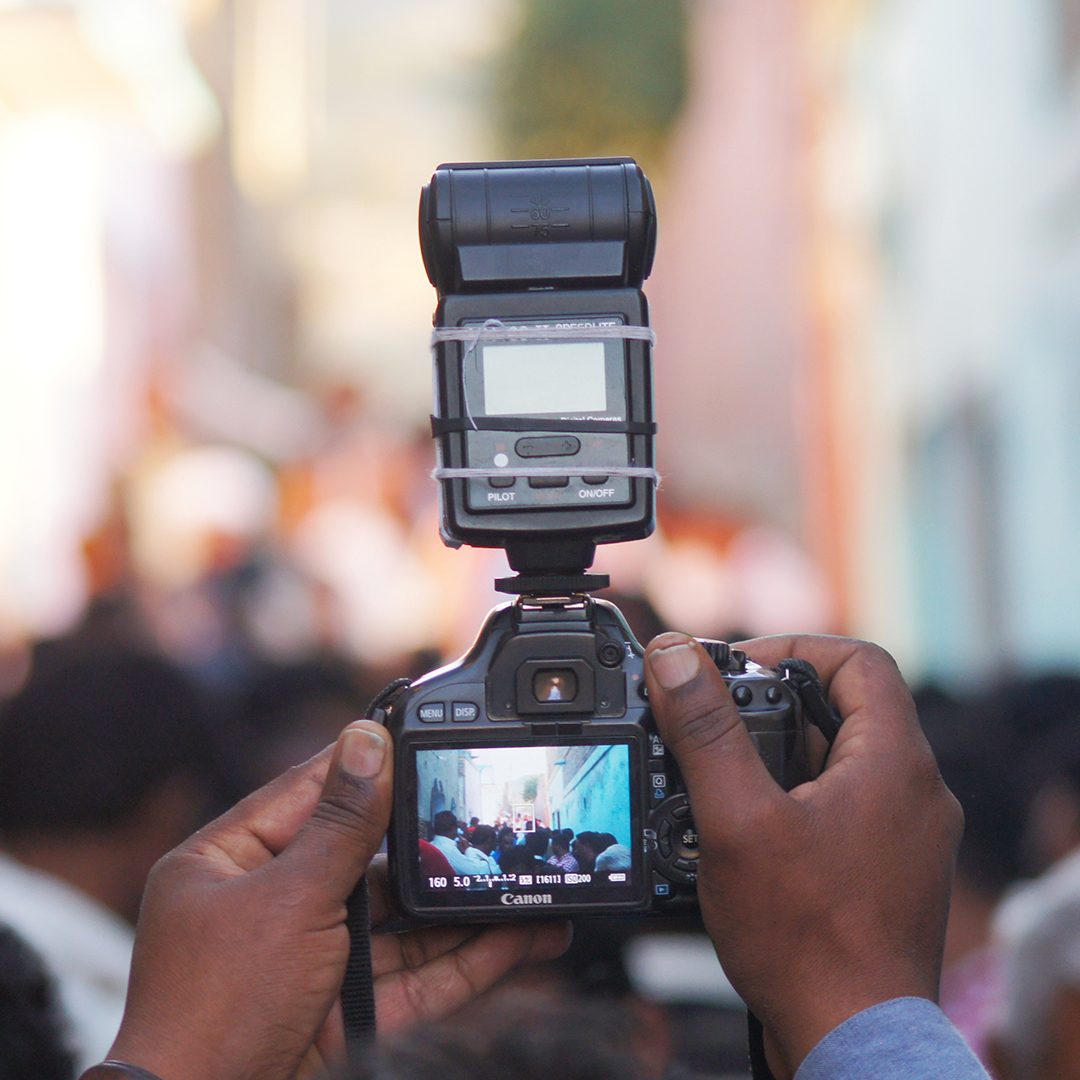
On March 1, Ayesha Khalid, a researcher working for the New York-based Coalition of Women in Journalism, published an open letter on the organization’s website. In it, she called out a Pakistan government spokesperson for instigating a string of personal attacks against reporters on Twitter.
The CWIJ, an international nonprofit, has been documenting cases of online harassment against Pakistani journalists — particularly women — since 2017.
The letter focused on a spokesperson and special assistant to Pakistan’s Prime Minister Imran Khan. It stated that “Mr. Shahbaz Gill routinely attacks journalists and thus starts a trend of online trolling against them. CFWIJ condemns this intimidation and bullying of female journalists from a government official. We urge the government authorities to step in and hold Mr. Shahbaz accountable for his misconduct.”
“Journalists who are critical of the government are increasingly faced with vicious trolling peppered with hacking attempts in the name of ‘fact-checking’,” said Khalid, during a telephone conversation.
Khalid said she found herself facing a storm of online abuse within a few hours of posting the open letter, and that multiple attempts were made to hack her Twitter account.
In Pakistan, government officials such as Gill often use their social media presence to cast reporters critical of the ruling party, Pakistan Tehreek-e-Insaf, as peddlers of fake news. In one instance, Gill, shared on Twitter a screenshot of Benazir Shah’s coverage of the government’s handling of the Covid-19 crisis for the satellite news channel Geo News, accusing her of having an agenda against Khan’s administration.
“Such lifafay (bribe takers) are the real enemies of the country. We should boycott her,” read one reply.
“I have never experienced this severity of trolling and online abuse in my career. Such relentless coordinated attacks to denigrate and discredit my work on social media from senior government officials are aimed at stopping you from reporting and asking questions,” Shah said, via WhatsApp. “These accusations of spreading ‘fake news’ take a mental toll on you. You start doubting yourself and as a reporter it is very challenging if government officials start refusing requests for comment due to such labeling,” she added.
Discrediting legitimate media reports as “fake news” has become a key tactic of Pakistan’s ruling party. Soon after coming to power in 2018, Khan’s administration launched the @FakeNews_Buster Twitter account, in order to “counter fake and negative” reports. @FakeNews_Buster, which now has over 63,000 followers, features posts in Urdu and English and is managed by Pakistan’s Ministry of Information & Broadcasting.
In its three years of existence, it has aggressively targeted stories by some of Pakistan’s most popular broadcasters and publishers – including Dawn, Jang and Geo News – and published government denials of their content.
Rebuttals posted on the account often show a bold red “fake news” label stamped on screenshots of reports or tweets, with little explanation why.
“Disseminating #FakeNews is not only unethical and illegal but it is also a disservice to the nation,” reads a post by the account, referring to a Dawn report about a minister’s speech asking people to “turn their black money into white” by investing in the construction industry. The account did not expand on what it deemed “fake news” in the report, which was based on a direct quote from the minister’s press conference.
When asked to comment for this story, the information ministry declined to specify the criteria it uses to establish whether or not a given story is deemed to be “fake news.”
Since 2018, the media has come under more comprehensive censorship in Pakistan. In 2020, the country was ranked 145th on the World Press Freedom Index and a number of journalists faced arrest over social media posts viewed to be critical of state institutions. State regulators have also fined and penalized media organizations for printing or airing “objectionable” content. This heavy hand has extended to tech platforms, with authorities banning apps, including Tinder and TikTok.
In April, the Pakistan Electronic Media Regulatory Authority advised satellite news channels to exercise caution while reporting on cabinet decisions and, in order to avoid the airing of “fake or speculative news,” to rely only on briefings by cabinet members.
Government-run fact-checking accounts are not new – similar systems exist elsewhere. As in India and Turkey, in Pakistan, the state is also being aided in its policing of the media by a vast network of volunteer supporters. Their tweets are regularly shared and promoted by cabinet ministers and PTI officials. The account holders are generally young, educated professionals, most of whom have returned to Pakistan from abroad.
Musa Virk, who relocated to Islamabad after graduating in information systems from Victoria University in Melbourne last year, is among the Twitter users most actively mimicking and amplifying government positions. In April, Khan invited Virk and a number of other social media supporters to discuss the PTI’s’s economic policies.
“I verify news from publicly available data from government or other official websites. Sometimes I contact the relevant ministers or officials, if I don’t have the information myself,” Virk told me, via WhatsApp.
He added that he usually concentrates his efforts on journalists covering finance and economy. In a recently published blog post, Virk accused Khurram Hussain, business editor for the national newspaper Dawn, of twisting facts in his columns to “disparage the prime minister and his economic team.”
The post was circulated by the PTI on Twitter, accusing Hussain of writing “factually incorrect” articles. Replies urged the government to take legal action against Hussain for peddling fake news.
“The ruling party is encouraging call out culture,” said Karachi-based Hussain, by telephone. “It has become a norm on Twitter. Tweets from official accounts discrediting a journalist’s profile lead to relentless mentions and heckling by their volunteer base,” he explained.
Government officials say volunteers who are experts in specialized fields like the economy or public health can be effective fact-checkers. “Journalists are usually not area experts and their questioning is more on political turf, focused on spice and getting headlines. These volunteers are area experts so their questioning is more technical and specific, which brings more to the table than just political rhetoric,” said Arslan Khalid, the prime minister’s spokesperson on digital media.
Public condemnation by the PTI is not limited to domestic media. In November last year, the party’s official Twitter account helped pushed the hashtag “#ShameonBBC”. The British national broadcaster was targeted for publishing a “non-factual” story about opposition parties forming an alliance to oppose Khan and his government.
Using a short video, a PTI Twitter post refuted the story and described BBC journalist Mohammad Ilyas Khan as “biased” and “anti-government.” The tweets prompted numerous online attacks on him.
Last year, Pakistan approved a set of new guidelines for governing social media. According to the rules, “online content that contains any fake or false information that threatens public order, public health and public safety” will be removed.
In an online ecosystem rife with conflict and skepticism, media experts warn that every baseless accusation of fake news erodes faith in the press and pushes Pakistan closer to becoming a place where only the state’s narratives count.
Samuel Maier, a student-attorney at the George Washington University Law School, who recently authored a document outlining a code of ethics for public officials in Pakistan, said government officials should refrain from personally fact-checking online content. “Regardless of whether or not the accusation is true, the ability of an individual official to begin dismantling the legitimacy of the free press breaks down one of the strongest weapons that the public has against corruption and abuse of power,” he said. – Rappler.com
Add a comment
How does this make you feel?



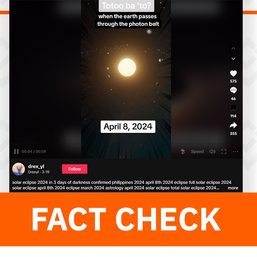


![[Newspoint] Fake press, undeserved freedom](https://www.rappler.com/tachyon/2024/04/newspoint-fake-press-undeserved-freedom-April-5-2024.jpg?resize=257%2C257&crop=318px%2C0px%2C720px%2C720px)
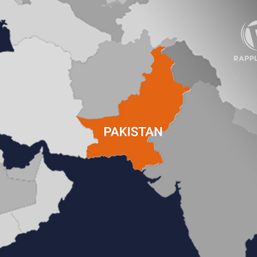
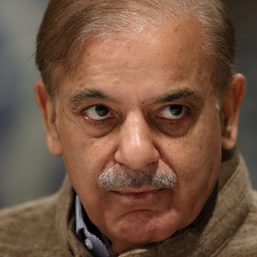
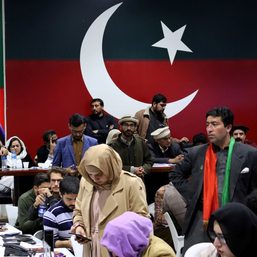
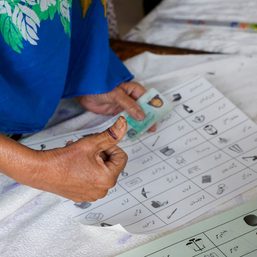
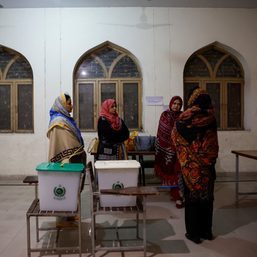
There are no comments yet. Add your comment to start the conversation.